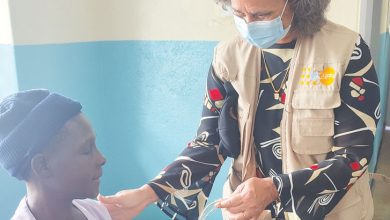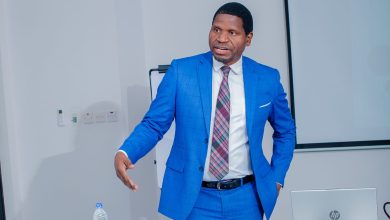Resource shortage dampens deaf students’ education
For special needs learners such as Margaret Ruvas, 18, who has a hearing impairment, it is a tall order to pass Malawi School Certificate of Education (MSCE) examinations with flying colours due to lack of resources.
In an interview through sign language interpreter Jackson Msuku last week, she said she had high hopes in 2018 when she was selected to Providence Girls Secondary School in Mulanje after excelling in the Primary School Leaving Certificate of Education (PSLCE) examinations at Mary View School for the Deaf in Nguludi, Chiradzulu.

However, her excitement was dampened as there was no sign language interpreter at Providence Girls Secondary School to ease her absorption of the lessons.
Said Ruvas: “My dream started to fade away the very first day I entered my Form One class because the learning set-up was totally different.
“There were no sign language interpreters and I could not understand what teachers were communicating.”
She said her situation was compounded by the fact that she was the sole learner with hearing impairment at the Catholic Church-managed secondary school, making it difficult to even communicate with fellow students.
Ruvas said despite the struggles, she passed her Junior Certificate of Education (JCE) examinations, but the going got tougher in Form Three ahead of the 2022 MSCE.
She said: “It was like I was teaching myself through reading notes, but it did not work. Out of 126 candidates who sat for the 2022 MSCE examinations at Providence, only me and two other colleagues who also had various challenges failed.
“I know I am very bright as evidenced by my Standard Eight examination performance and I could have done better if we had sign language interpreters.”
Her case mirrors the predicament of other students with hearing impairment in some public schools.
At Chiradzulu Secondary School, all the six students with hearing impairment who sat for 2023 JCE examinations failed.
In separate interviews, Edson Kadammanja and Enock Chamasowa, who were among the six, also attributed their poor performance to lack of sign language interpreters.
Kadammanja asked authorities to consider recruiting sign language interpreters in most public schools that accommodate learners with hearing impairment.
However, there is light at the end of the tunnel as under Muchitadala interpreter project, has recruited four sign language interpreters for Chiradzulu Secondary School. Tikonze Apapa Foundation,
Ruvas and her two colleagues have since been offered places at Chiradzulu Secondary School to repeat.
Tikonze Apapa Foundation communications officer Mary Mwambongo said the project, named after a Form Four hearing impairment student at Chiradzulu Secondary School, Muchitadala Chibowa, seeks to ensure equal access to quality education for learners with hearing impairment.
Commenting on the matter, Civil Society Education Coalition executive director Benedicto Kondowe echoed Mwambongo’s sentiments, saying most public secondary schools have no sign language interpreters.
Ministry of Education spokesperson Mphatso Nkuonera was not available for comment as his mobile phone went answered.





